What I Wish I Knew as a Mom To a Very High Energy Toddler
Originally published: January 29, 2020
Updated: January 30, 2025
No joke. When my first son was very young, I scoured as many parenting book indexes to find information on what to do with a high energy toddler. When I couldn’t find “high energy”, I would scan the “C” section to see if I could find, “Crazy Toddler!”
I never found either in any book. Womp. Womp.
As a first time mom, I had already read the typical advice offered to discipline children. The positive discipline and positive parenting tactics worked great when it came to following instructions and sleeping at night.
He listened (fairly well), had very kind intentions, seemed to have an advanced understanding of differences in other children, and wanted to do well.
However, he literally bounced off the walls and acted CRAZY!! People will sometimes compare kids to the Energizer Bunny, well my high-energy toddler would give that bunny a run for its money! **I got his permission to share this and I keep checking in has he’s gotten older. He has seen the videos and concurs.
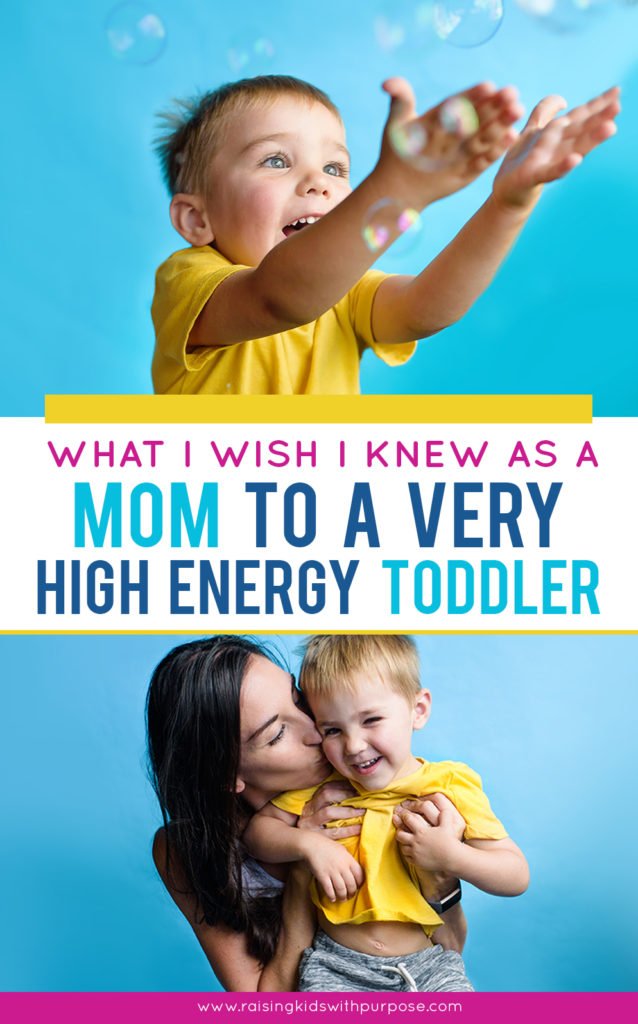
This post contains affiliate links, see disclosure policy for details.
I knew boys had a lot of energy—I was prepared for that. But this? This was beyond anything I ever imagined. At two and three years old, my son would literally sprint full speed into the wall just to see if he could knock himself out. I had watched my little brother grow up, but he was calm and easygoing. This was completely uncharted territory for me.
At the time, I had no understanding of behavior or that brains could be differently wired. I had no framework to make sense of what was happening inside my home.
Then came a pivotal moment while my husband was out of town. My son was in the shower, water flying everywhere, grabbing his brother, screaming at the top of his lungs—completely out of control. He wasn’t upset; in fact, he was thrilled. But he had absolutely no control over his actions.
I sat on the toilet with this thought…
“I quit motherhood.”

Table of Contents
What I Wish I Knew When My Son Was a High Energy Toddler
As my son grew, started school and we learned more about how his brain was wired, a lot of things started to make sense.
If you find yourself in the same boat of not knowing what to do with your overly active hyper, maybe sometimes crazy child, here are some things I wish I would have known that may help you.
The Inner-workings of a Child’s Brain
If I could make The Whole-Brain Child by Dr. Daniel Siegel and Dr. Tina Payne Bryson required reading for every parent, I would! This book does an incredible job of breaking down what’s happening in your child’s brain in a way that’s both practical and easy to understand.
At its core, the brain functions best when it’s integrated, all parts working together in balance. Kids thrive when their right emotional brain and left logical brain work in sync, helping them live meaningful, creative, and well-balanced lives.
As parents, we can support this process by first connecting with our child’s right brain so we can meet them in their emotional state. Only once they are calm can we engage their left brain with logic and reasoning to help them process their behavior.
One of my biggest takeaways from the book was understanding the difference between the upstairs thinker brain and the downstairs reactive brain. The prefrontal cortex, the upstairs brain, doesn’t fully develop until the late 20’s. When kids have access to it, they can think clearly, make good decisions, and understand consequences. But when they’re stuck in their downstairs brain, things can get chaotic fast.
Dr. Siegel explains this with a powerful analogy: when kids are overwhelmed by big emotions—anger, frustration, sadness—a baby gate slams shut at the bottom of the stairs, blocking access to their upstairs brain. Our job as parents is to help open that gate by connecting with them first and guiding them to calm.
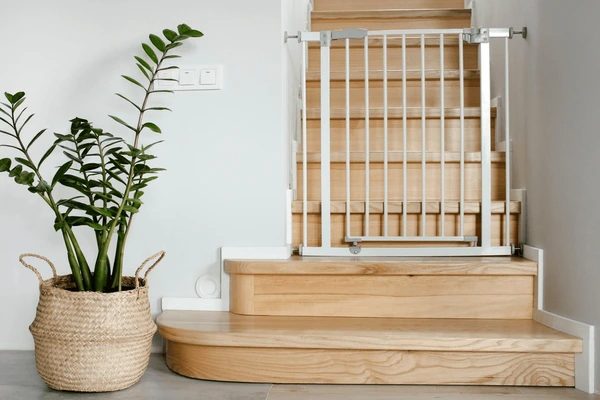
When I was navigating life with my wild, high-energy toddler, this concept changed everything. Instead of trying to control his behavior, I learned to get on his level, connect with him, name what was happening, and gently guide him back to a state where he could function like a calm human again.
How to Look Underneath the Surface
Behavior is communication. No matter how a child is acting, he or she is communicating with you.
Underneath every unwanted behavior is usually an unmet need.
Although my son wasn’t disobeying or making poor choices, there was a reason he was running full speed into the wall.
How a child acts on the outside is like the tip of the iceberg poking out of the water. It’s what is underneath the surface that gives us insight as to where the behavior is coming from.
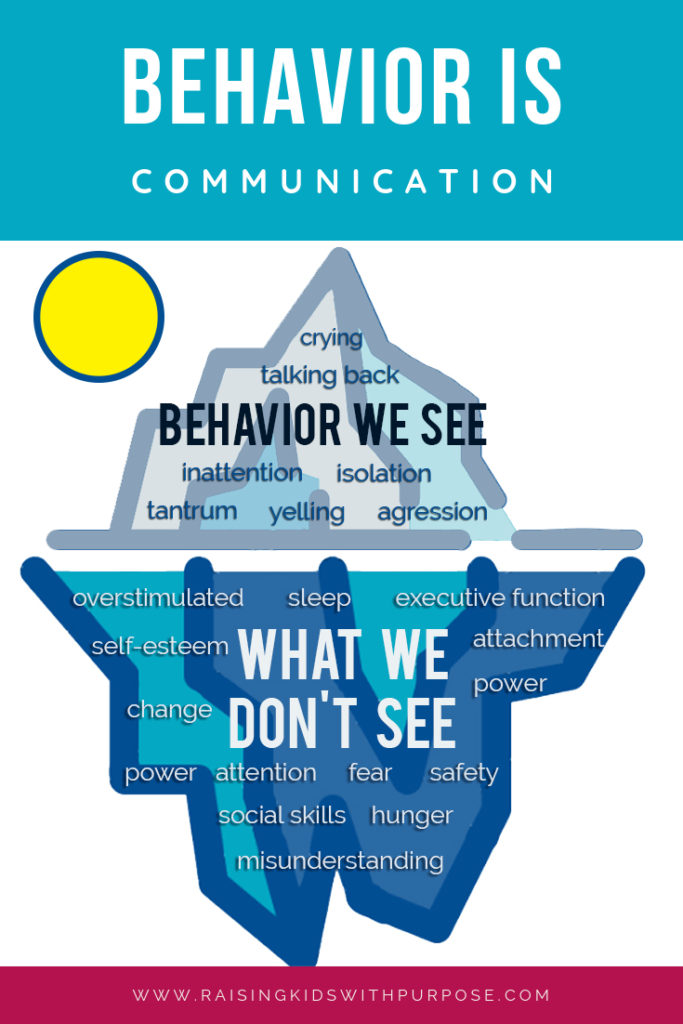
For my high energy toddler, it was a sensory need. I still don’t have a full understanding of the proprioceptive system and sensory output versus input, but what I do know is some kids have challenges with responding to information that comes through their senses.
He had a need that required him to want movement and physical contact. It’s what is called sensory seeking. Here are signs to look out for:
- Touches everything!
- Is very physical and prefers to play rough (although the intent may not be to hurt)
- Is clumsy or always falling
- Has a high tolerance for pain
- Squirms and fidgets a lot – it seems like he or she never stops moving!
Yep, this pretty much sums up my son as a toddler.
If I had this knowledge, I could have created more structure to his day with routines and given him tools to calm down (like in my calm down kit!).
I also wish I would have known about other outlets that we have found that work to fulfill his sensory needs such as fidgets, a weighted blanket, squeezy balls, mazes, joint compressions, a trampoline or anything else that allowed him to get energy out in a safe way. My friend, Julie, has a GREAT list of activities for kids to get the proprioceptive and vestibular sensory input they need.
Read Next: Routines for Kids: How They Work and & How To Create Your Own
The Difference Between Neurotypical and Neurodiverse Children
I always knew that every child was unique and special—I mean, I had entire school units on it in 5th, 6th, and 7th grade! But what I didn’t know was that there was something called asynchronous development or neurodiversity—and that these concepts would completely change how I understood my child.
In a neurotypical brain, development follows a relatively predictable pattern, where cognitive, emotional, and physical growth stay fairly in sync with peers of the same age. But in a neurodiverse brain, development can be wildly uneven: advanced in some areas and significantly behind in others. This is especially common in gifted children, where the higher the IQ, the greater the developmental gaps tend to be.
And here’s where things get tricky: our medical and educational systems in the U.S. are built for neurotypical kids.
The challenge is that culture and society will treat that child like their brain is that age instead of meeting where he or she is developmentally. This is where advocacy becomes vitally important.
So there I was, desperately seeking help, wondering why my son, a child who could create the most intricate paper sculptures, disassemble and reassemble electronics at three years old, and do complex math in his head, couldn’t seem to control his emotions, body, or impulses like other kids his age.
The only advice I got from professionals? “Just keep him safe.” And let me tell you, that alone was a full-time job.
What I really needed was a framework to understand his development. Simply recognizing that he wasn’t on the same trajectory as his peers or the kids he was being compared to by doctors and teachers would have helped me in a much bigger way. Instead of feeling like I was failing at motherhood, I could have focused on supporting his growth in the areas where he was behind, rather than expecting him to fit a mold that wasn’t made for him.
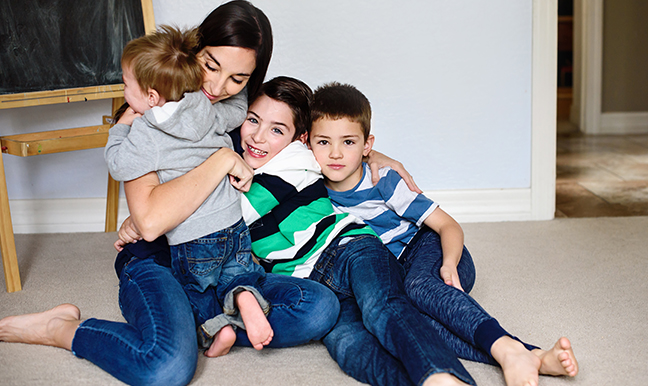
Connection is More Important Than Correction
When my son was little, I joined mom groups like Stroller Strides and MOPS (both have updated company names).
The number one topic I heard moms discuss was: How do we get our toddlers and preschoolers to listen? We were all searching for the magic formula to make our kids do what we wanted when we wanted.
Wow! My perspective sure has changed about how to get kids to listen. And honestly, I completely stopped asking that question because it was the wrong one. And let me tell you, it has made parenting so much less stressful. Looking back, I realize I could have saved myself so many frustrating moments I changed my perspective earlier.
Related: The Real Reason Parenting is Hard and How to Make It Easier
Instead of focusing on how to get my child to listen, what I really needed to learn was how to connect before I corrected. Most of the time, my son wasn’t even misbehaving. He was typically overflowing with energy and enthusiasm which made me feel overwhelmed.
It wasn’t bad behavior; it was just more than I could handle at the moment.
And here’s the game-changer: kids respond best when they feel connected.
Instead of resorting to counting to three, time-outs, or the latest discipline hack I found online, all I needed to do was figure out what my high-energy toddler needed to connect.
For my son, that meant a hug, eye contact, and affirmations—even now as a teen, that’s still what works best for him. For your child, it might be playful interaction, physical closeness, or simply feeling heard.
Once I started focusing on connection first, everything shifted. I didn’t have to fight for control or constantly repeat myself. My son felt safe, seen, and understood—and that made all the difference in how he responded.
So if you’re feeling exhausted trying to get your child to listen, take a step back and ask:
How does my child like to connect?
You might be surprised at how much easier parenting becomes when you prioritize connection over correction. 💛
How to Make Self-Care a Priority!
Lastly, I didn’t really take care of myself. Instead, I put all my energy and effort into chasing after a crazy high energy toddler! How in the world could I have time to focus on myself?
What I found as my kids got older is when I focus on self-care every day (not just Sundays!), I have a whole lot more to give. Self-care doesn’t have to be this long day at the spa. Instead, it can be squeezing in a workout, spending time with friends, reading the Bible and praying, or heck, taking a shower and actually blow drying your hair! Some of these were extremely hard to do with a very high energy toddler running around screaming, but I should have made them a priority!
If you struggle with self-care, check out my free Taking Care of MYSELF Ebook when you sign up for my newsletter.
A Note To The Mama With a High Energy Toddler (Who May Be Driving You a Little Bonker Balls)
I want to tell you that I can relate. Seriously, if you don’t know where to turn and you’re struggling to help calm your child, CONTACT ME! I’d love to chat and help you figure out what’s under the surface.
Also, I’m here to let you know that it can get better. Stay focused on connecting with your child regardless of how tired he or she makes you feel and the rewards will be more than you could ever imagine.
What To Do If You Have a High Energy Toddler
Here is the condensed version of what I could have done differently and what I ended up changing as my son got older. Knowledge is power!
- Get on your child’s level (or below eye contact if they’re not too low to the ground!), connect with him or her, and name it to tame it.
- Provide outlets for your active child to get all the wiggles out! Don’t repress the movement! Use sensory toys, encourage playing outside, running, jumping, use a weighted blanket or do joint compressions at night.
- Reframe your thinking about how your child should be acting. Look at his or her brain wiring, interests and developmental milestones compared only to your child, not other kids the same age.
- Connect before you correct. Every time!
- Work with a parent Coach! I have a 12-week P.U.R.P.O.S.E. Parent Program where we address what’s written in this post and so much more!
PS: If you don’t know what “bonker balls” is referencing to, then you are missing out and must check out the best podcast ever for kids. Shhhh, I even listen when I’m without my kids!!
Download Your Free Hyperactive Kids Toolkit
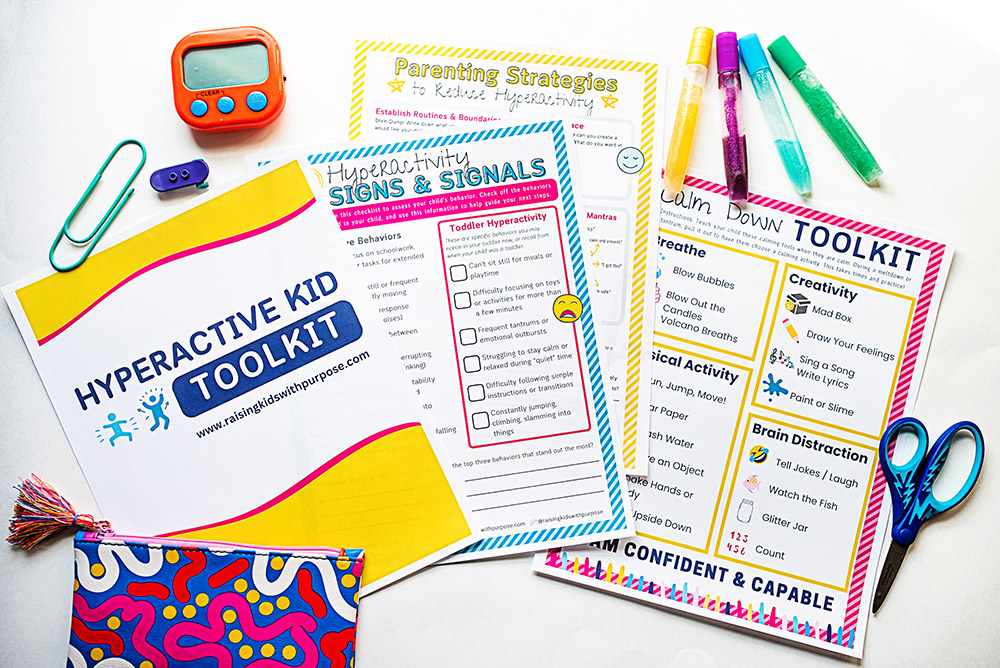
Need help with your hyperactive toddler? I created the Hyperactive Kid Toolkit just for you!
Hyperactivity Signs and Signals
The first page is a guide to signs and signals, making it easier to track your child’s behaviors. When my son was younger—toddler, preschooler, and even when he was in elementary school—he checked every box for hyperactivity. Now, as a teenager, I don’t notice it as much, but he’s still very active, which is why he wants to live at the skatepark, jujitsu gym, or basketball court every day! The good news is he has learned how to channel that energy on his own. 🙌
Parenting Strategies
The second page is packed full of parenting Strategies that I unpack in this post and that will truly help you parent a child with crazy amounts of energy.
Calm Down Toolkit
The last page is part of a bigger toolkit I have that helps kids with calming strategies. Oftentimes, hyperactive kids have BIG emotions. They need a little extra help in the emotional regulation department. You can grab the full Calm Down Toolkit here.
Does Your Toddler Have a Ton of Energy?
Are you currently in the toddler stage and don’t know what to do with all of your toddler’s energy? Or are you past that phase, but your child is still bouncing off the walls? I hope these tips help! If you know other moms who this information will benefit, please feel free to share!!! Click on the share buttons below.
Lastly, I mentioned this earlier, and I mean it. If you’re not sure where else to turn and traditional advice is not working, please email me!


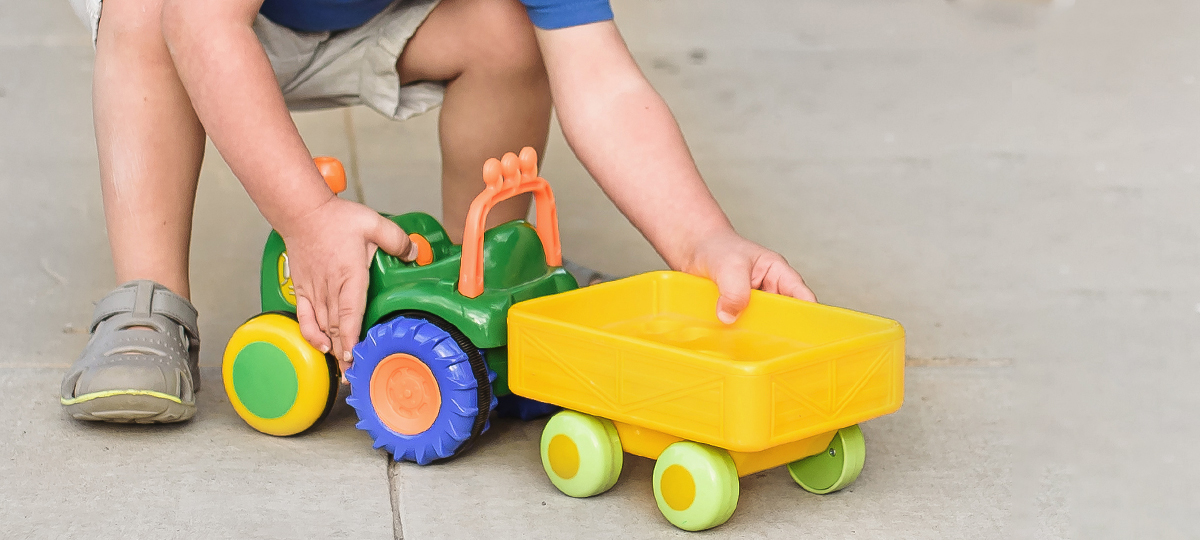
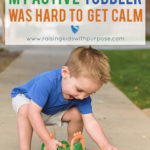

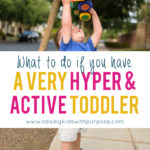
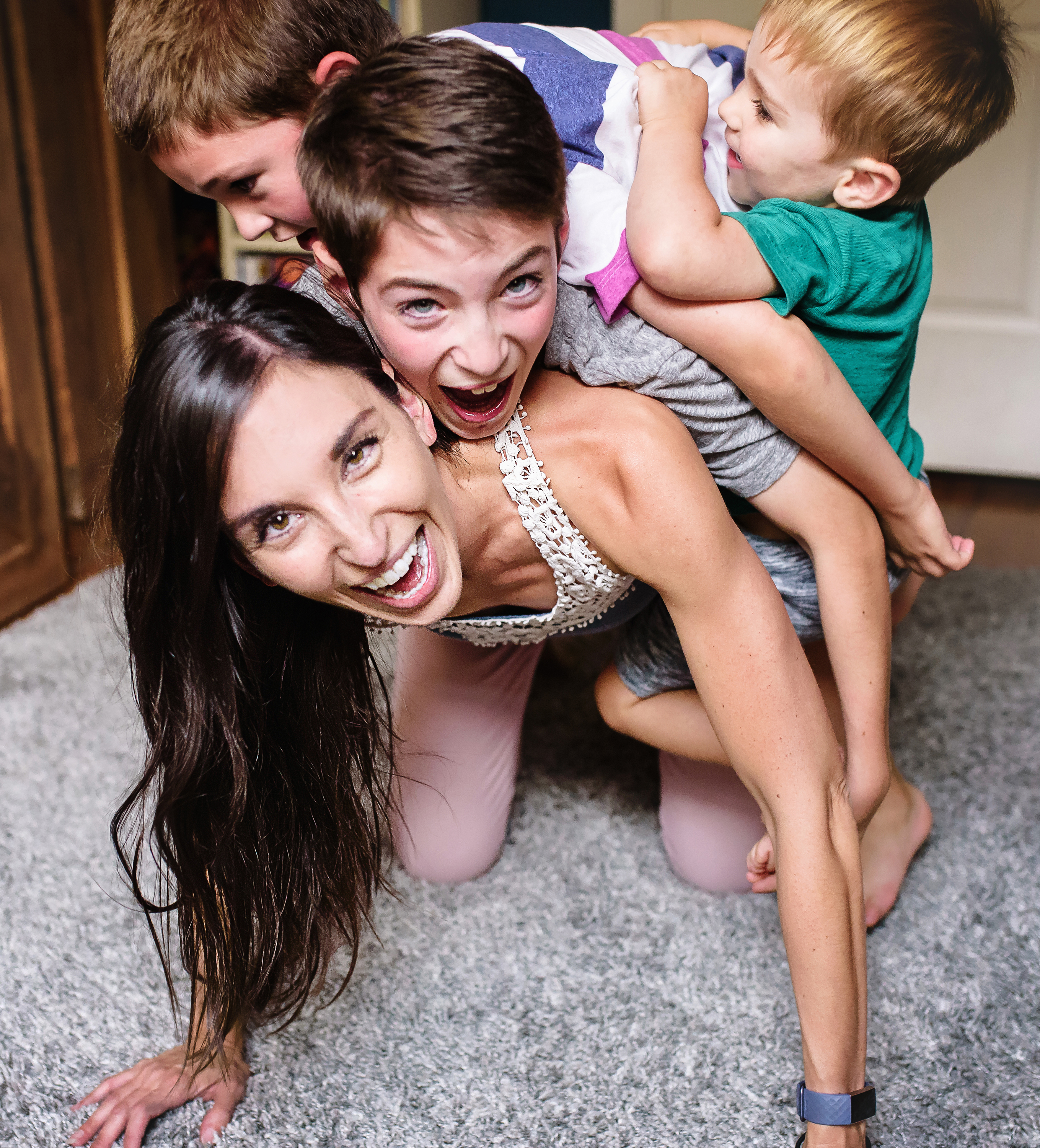
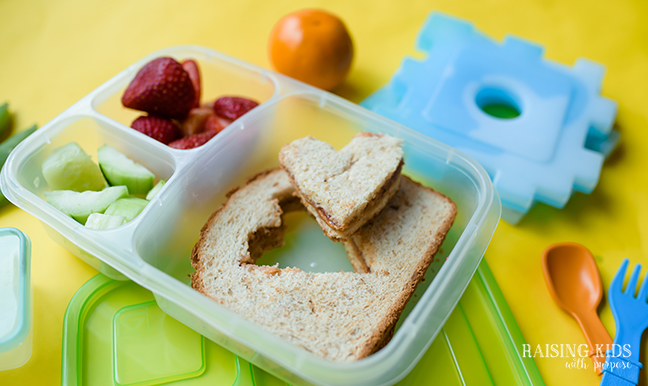
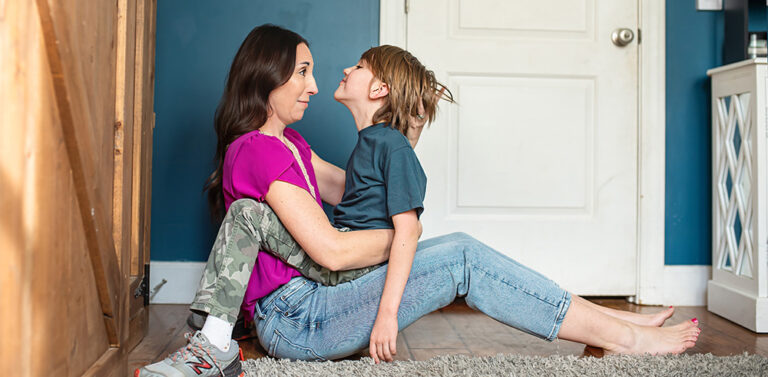
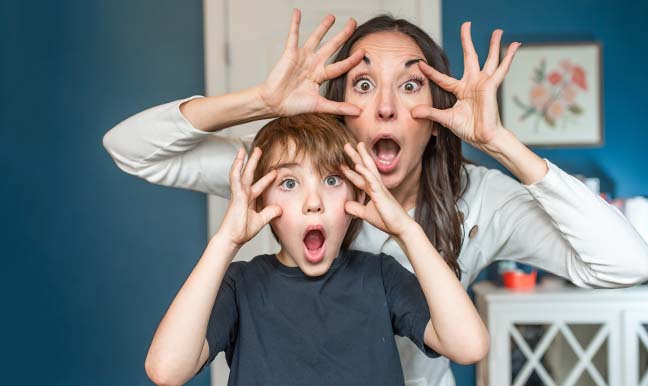
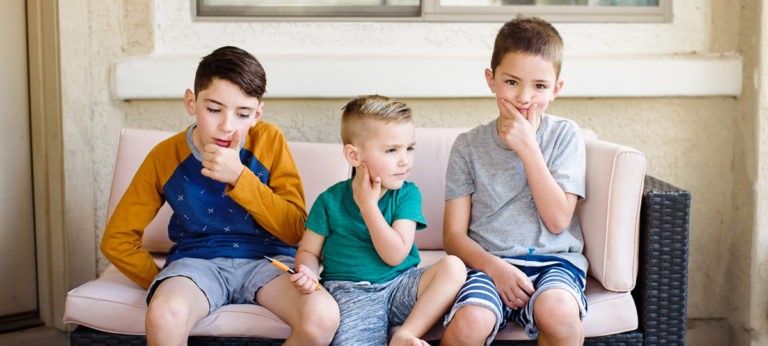


Really enjoyed reading,thanks for sharing
Thank you!
Great post that is sure to help many fellow parents! As a teacher, I’m so relieved that the word is getting out there on sensory needs of children. The brain is so complex! I also hear you on the self-care. I was late in learning the significance of that one, but making myself a priority has made a significant positive impact on my ability to be a better parent.
Thank you!! Absolutely! Anyone who is around or works with children needs to understand that bad behavior is not actually bad – there’s something else going on that needs to be addressed. We have the power to give kids the skills and tools they need! I’m so happy to hear you are taking care of yourself. It needs to be a priority!
What a very interesting read! My toddler son also has lots of energy, literally running around in circles. Thanks for writing this!
As you read, my son did too! Thank you!!!
Thanks for sharing this! My son was such a mellow child, but my daughter is the complete opposite and always has to be active. It can become very exhausting. I am going to have to check out the book you mentioned because I have heard it talked about by other moms too.
YES! It has been so eye-opening! All of their books are really good if you enjoy reading those kind of books.
Okay, I just have to say you had me in the first couple paragraphs. It has always driven me nuts, people talk about their children and the they bring up their “one” child that is high energy and ultra creative and how it challenges them and when they describe the child all I’ve ever been able to think was “all mine are that way-I thought that it was normal”, lol!
Every one of my children are high energy, ultra loving, creative, and passionate. When they are around other kids you can really see the difference. I used to worry and fret, thinking something was wrong with my children. Now that the oldest is 15 and I can see things God is beginning to do in his life I can see that it’s all good!
That’s incredible you’re able to see God’s plan for his life! Yes, we have a pretty intense household but you know what, once we started embracing their strengths, it doesn’t seem crazy anymore. I get it now! Thank you so much for sharing!!!
This is totally my kid. Heavy input sensory seeker. I found this SO helpful (and you pretty much described my life to a “T”).
Really?! I’m so happy it was helpful!
I just moved from high-energy toddler to high-energy preschooler so this experience is still pretty fresh in my mind. Of course you’re looking back now and thinking you could have made more time for yourself and made things better…but probably not. Womp. Womp. It’s just too freakin hard when you have the kind of wound up kid that other people are constantly going “Wow, you sure have your hands full.” It’s a constant 24-7 battle. But you didn’t quit motherhood, and therefor you have succeeded 🙂 I am just now crawling out of that toddler battleground myself. Reading books like the one you mentioned definitely helps though! And at least makes you feel like you are trying something, lol.
You said WOMP WOMP! ♥♥♥ Can we be besties? LOL! Awe, I know it’s hard. And I should’ve put that as a point as well. Stop being so concerned about what others think how you should parent…unless it’s back up by research or proven reasons as to why you should do that. We need to break the generational cycle of shame parenting! You got this!!!
I feel like you are talking about my son. He was a very high energy toddler.
It’s very common!
Great info for overwhelmed parents!
Thank you!
Wow what useful information! I am going to check out the books you recommended, thank you so much for sharing!
Thank you!
You are a super mom!
I was thinking my kids are super active, but seems that nothing comared with yours 🙂
LOL! But once I figured out where it came from, it all began to make sense!
My daughter is High Energy too, and this is so spot-on, and accurate.
I had no idea!
This is all such great information! Providing an active child with structure and sensory activities is definitely important!
-Jennifer
It really is! I had NO idea and which I did.
Great post! I have quit parenting a few times! I have a crazy toddler now but she is pretty tame compared to many others.
LOL! Thankfully you didn’t quit for good.
Great post. I will share it with my friends who have high energy kids. She thinks she’s alone as she calls me to complain how stressed and tired she is.
Thank you! It can definitely feel like that. She can message me if she needs any help!
What a great article which describes my 2 year old to a T! Very smart and very high energy 2nd child. We are currently struggling at bedtime because he just can’t calm down no matter what we do! It’s very stressful and this Momma has thought about quitting a few times ! And I am in much need of self care, giving everything to everyone to make sure they are all taken care of, but then too tired to take care of ME !!
Thanks for sharing! This is exactly what I’m going through with my two and a half boy. He alone is a handful. I find myself crying, frustrated, angry, exhausted, praying and asking God to please help me be the parent my boy needs because I can’t take it many times. I love him so much but can’t seem to tone down his energy but when he is sleeping or doing table time activities (arts &crafts, painting , coloring., etc which only lasts so long). I don’t feel understood, but this article was God sent.
I don’t understand how to connect before I correct? Can I have some examples please.
Thank you so much for this, you answered all of my questions that I’ve been looking for since becoming a mommy. God bless you and your family!
My son’s energy has become a concern for me and tonight, I decided to surf the internet at 11pm. I find this article extremely useful and I will start to put it to use henceforth. I’ll also get the book recommendations. I really hope for the best and will prioritise self care because I can’t give from an empty cup.
God bless you greatly!
Thank you! I pray you found answers!
I’m reading this right now, and it’s almost 6 am. Shows how exhausted and desperate I am to understand what the heck is going on with my kid. THANK YOU. My kid is 3.5 years old, and it seems she’s calming down… a bit. As your son got older, did he calm down? Or, you kept him busy to help him not be so active?
Hi Ella, I’m so sorry I missed your comment as I have thousands to approve including a ton of spam. I’m so sorry you are desperate and exhuasted. Please email me at adriane@raisingkidswithpurpose.com if you’re still looking for help!
My son is now 15!!! He still has a lot of energy but he’s able to fulfill it himself by going to the skatepark almost daily, teaching himself how to do cool tricks on a pro scooter, and he plays basketball. His energy is still there but I’d guess I say it’s more directed energy!
Thanks for writing this! It’s wonderful to know I’m not in this alone. Honestly, it really bugs me that everyone everywhere we go brings it up. I think the most I was told that my 2 year old son has a lot of energy was 5 times in one day by random people. Everywhere we go like the park or zoo or any kids place, every parent I talk to always says, “Wow, he has a lot of energy.” And I mean so what he has a lot of energy? I love that about him. He’s two, he likes to have fun and run around, that doesn’t bother me. It just annoys me that everywhere we go, someone makes a point of saying it.
Little boys for sure have a lot of energy but also, there could be so many reasons why – he’s probably just seeking sensory input and having a blast while doing it. It’s not WRONG to be hyper as a toddler. Thanks for commenting!
I want to say thank you for sharing your experience. My child is hyper until bedtime and sometimes insomnia is her friend. I cannot leave out she’s been diagnosed with Autism. I don’t think that’s what it is and professionals can’t really pinpoint the issue. I’m like you, a research-holic, trying to find ways to help her, we’ve tried everything except meds, which is our rationale of why her brain was tainted earlier on after immunization. Of course health specialist denies this accusation, but I know my child before and now after! She’s 7years old today. Please contact me if you’re still around. Thank You!
Hi! Thank you for reaching out. I have walked a similar path. I’ll email you!